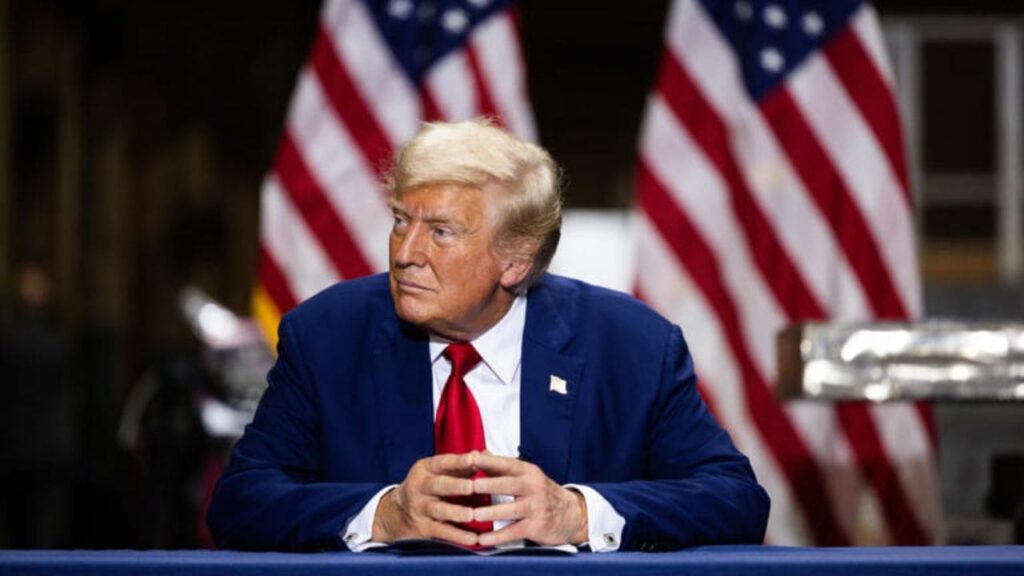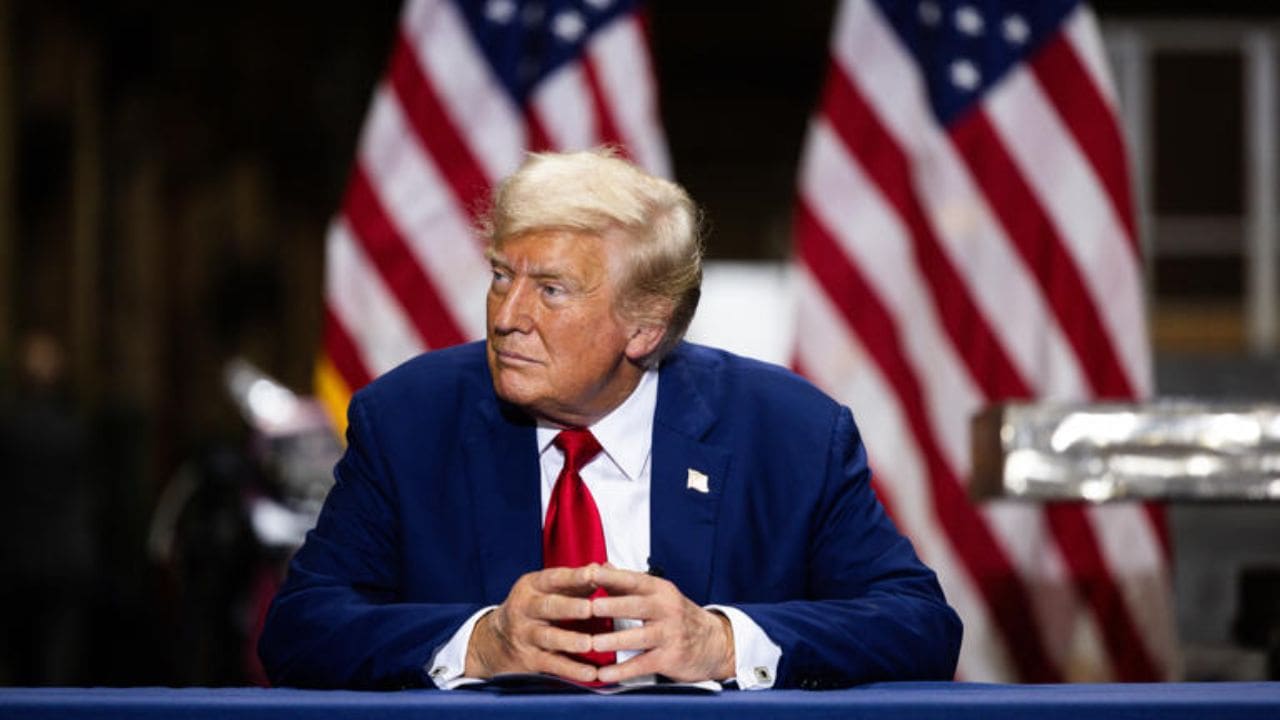Iran cyberattack, Trump campaign hack, U.S. election interference, 2024 election, foreign interference, U.S. intelligence, ODNI, FBI, CISA, cyber warfare, political campaign cybersecurity, Iranian hackers, Donald Trump, Joe Biden, Kamala Harris
U.S. intelligence agencies have confirmed that Iran was behind the recent cyberattack on Donald Trump’s campaign, marking a significant instance of foreign interference in the 2024 election. Learn more about the implications of this breach, the motivations behind it, and the U.S. government’s response to protect the integrity of the electoral process.
In a significant development, U.S. intelligence officials revealed that Iran is believed to be behind a recent cyberattack targeting former President Donald Trump’s campaign. This revelation underscores the ongoing concerns about foreign interference in the U.S. electoral process, particularly from state-sponsored actors seeking to exploit the vulnerabilities of political campaigns.

The Joint Statement: An Unprecedented Acknowledgment
On Monday, a joint statement was released by the Office of the Director of National Intelligence (ODNI), the Federal Bureau of Investigation (FBI), and the Cybersecurity and Infrastructure Security Agency (CISA). The statement expressed a strong belief that Iran was behind the cyber intrusion aimed at compromising former President Trump’s campaign. According to these agencies, Iran has viewed the 2024 presidential election as a particularly critical event and has sought to interfere through various means, including hacking.
The statement also hinted that Iran’s cyber activities were not limited to targeting Trump’s campaign. It suggested that Iranian actors had attempted to gain access to the campaigns of President Joe Biden and Vice President Kamala Harris, emphasizing that the Iranians sought to reach individuals with direct access to both presidential campaigns. This broad targeting highlights Iran’s ambitions to gather sensitive information that could potentially influence or disrupt the U.S. electoral process.
The Nature of the Hack: What We Know So Far
While the exact details of the hack remain unclear, it has been reported that the breach involved the theft of internal communications and documents from Trump’s campaign. These documents, according to the Trump campaign, were obtained illegally by “foreign sources hostile to the United States,” suggesting that this was a state-sponsored attack.
The campaign’s spokesperson, Steven Cheung, pointed fingers directly at Iran, stating that the Iranians were behind the attack. Cheung emphasized that Iran has a vested interest in disrupting the U.S. electoral process, particularly because of Trump’s tough stance on Iran during his presidency. He warned that the Iranians know that if Trump were to return to the White House, he would continue to challenge their influence and activities in the region, just as he did during his first term.
Iran’s Motivation: Stoking Discord and Undermining Confidence
The joint statement from ODNI, FBI, and CISA also delved into Iran’s broader motivations behind the cyberattack. The agencies reiterated that Iran has a longstanding interest in exploiting societal tensions within the United States. By engaging in cyber operations, Iran aims to gain access to sensitive information related to U.S. elections, which could be used to stoke discord and undermine public confidence in the democratic process.
This type of interference is not new. In previous elections, Iran, along with other foreign actors such as Russia, has been accused of attempting to meddle in the U.S. electoral process. These actions are part of a broader strategy by these nations to weaken the United States by sowing division and mistrust among its citizens. The 2024 presidential election, being one of the most consequential in recent history, has made it an attractive target for such interference.
U.S. Response: Protecting the Integrity of the Elections
The U.S. intelligence community has made it clear that protecting the integrity of the elections from foreign interference is a top priority. The FBI, as the lead agency for threat response, has been actively tracking this activity and has been in contact with the victims of the hack. The agency is continuing its investigation into the breach, gathering information to identify and disrupt the threat actors responsible.
In their joint statement, the intelligence agencies emphasized that the U.S. government will not tolerate foreign efforts to influence or interfere with its elections. This strong stance reflects the serious nature of the threat posed by state-sponsored cyberattacks and the determination of U.S. authorities to defend the democratic process.
The Broader Implications: A New Front in Cyber Warfare
The hack of Trump’s campaign by Iranian actors represents a new front in the ongoing cyber warfare between nation-states. Cyberattacks targeting political campaigns are particularly concerning because they strike at the heart of the democratic process. By compromising campaign communications and documents, foreign adversaries can gain insights into the strategies, vulnerabilities, and internal dynamics of political candidates, which can then be exploited to influence the outcome of elections.
This incident also raises questions about the security measures in place to protect political campaigns from such threats. While the U.S. government has taken significant steps to bolster the cybersecurity of election infrastructure, political campaigns remain relatively vulnerable. Campaigns often operate with limited resources and expertise in cybersecurity, making them attractive targets for sophisticated state-sponsored actors.
The Role of Social Engineering: A Key Tactic in Cyberattacks
One of the methods reportedly used by Iranian hackers in this attack was social engineering. Social engineering involves manipulating individuals into divulging confidential information or granting access to secure systems. This tactic is particularly effective because it targets the human element, which is often the weakest link in cybersecurity.
The use of social engineering in this context underscores the need for greater awareness and training among political campaign staff. As cyber threats continue to evolve, it is essential that individuals involved in political campaigns are equipped with the knowledge and tools to recognize and defend against such tactics.
The Geopolitical Context: Iran’s Strategic Objectives
Iran’s involvement in the hack of Trump’s campaign must also be understood within the broader geopolitical context. Relations between the United States and Iran have been fraught with tension for decades, particularly over issues such as Iran’s nuclear program, its support for proxy groups in the Middle East, and its opposition to U.S. influence in the region.
During his presidency, Donald Trump took a hardline stance against Iran, withdrawing the United States from the Joint Comprehensive Plan of Action (JCPOA), commonly known as the Iran nuclear deal, and imposing severe economic sanctions on the country. These actions significantly escalated tensions between the two nations, leading to a series of confrontations in the region.
Given this history, it is not surprising that Iran would seek to undermine Trump’s campaign as part of its broader strategy to weaken U.S. influence and protect its own interests. By hacking into the campaign, Iran could potentially gain valuable intelligence that could be used to further its objectives, both domestically and internationally.
The Impact on the 2024 Election: A Potential Game-Changer?
The revelation that Iran was behind the hack of Trump’s campaign could have significant implications for the 2024 election. While it is unclear how much damage the hack has caused or what specific information was compromised, the fact that a foreign adversary was able to breach a major political campaign is alarming.
This incident could also influence public perceptions of foreign interference in U.S. elections. As voters become more aware of the risks posed by state-sponsored cyberattacks, there may be increased calls for stronger cybersecurity measures and greater accountability for those responsible. It could also shape the narrative around election security, with candidates emphasizing the need to protect the democratic process from foreign threats.
Conclusion: A Wake-Up Call for U.S. Election Security
The revelation that Iran was behind the hack of Donald Trump’s campaign serves as a stark reminder of the ongoing threats to U.S. election security. As the 2024 presidential election approaches, it is crucial that the U.S. government and political campaigns take proactive steps to defend against foreign interference.
This incident highlights the need for comprehensive cybersecurity measures, increased awareness and training for campaign staff, and a robust response from law enforcement and intelligence agencies. The integrity of the U.S. electoral process depends on the ability to protect it from foreign adversaries seeking to sow discord and undermine democracy.
As the investigation into the hack continues, it is likely that more details will emerge about the extent of the breach and the motivations behind it. In the meantime, this incident should serve as a wake-up call for all those involved in the political process, reminding them of the critical importance of cybersecurity in safeguarding the future of American democracy.
Read More
